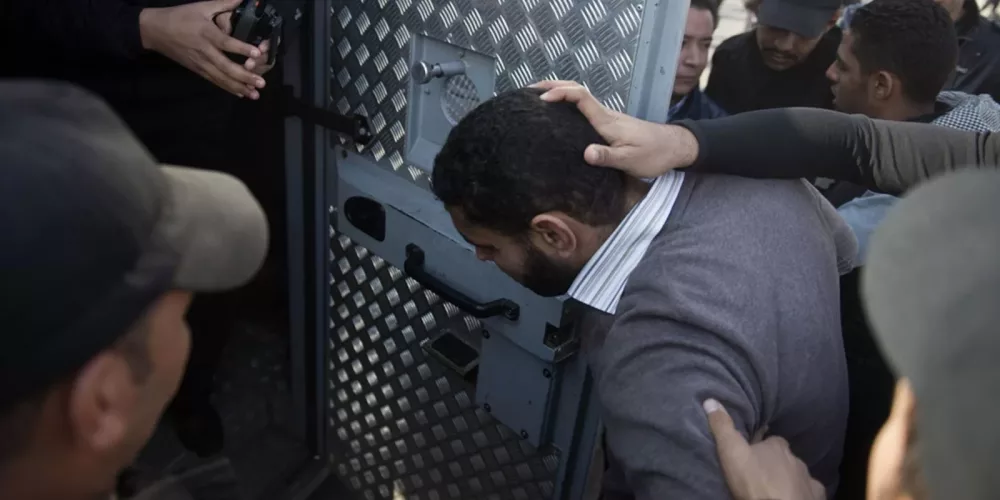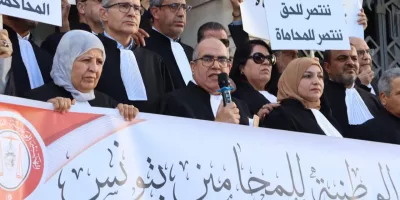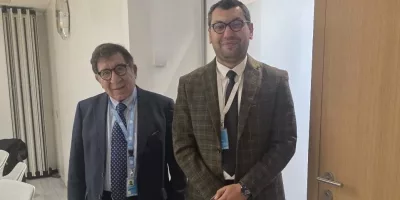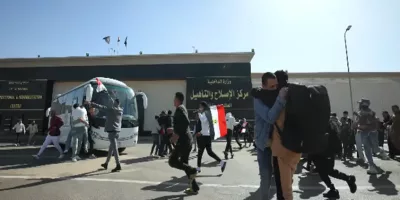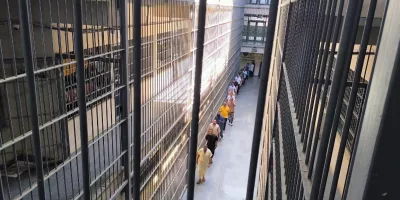The “Committee for Justice” (CFJ) stated that Egyptian authorities continue to escalate a policy of retaliation against human rights defenders and lawyers as part of a systematic campaign aimed at intimidating and punishing them for their cooperation with United Nations human rights mechanisms. This occurs amid a rise in cases of harassment, arbitrary detention, and unfair legal prosecutions, which are used as tools to isolate activists and hinder their work in documenting violations and publishing reports before international bodies.
This comes after the CFJ submitted a new report to the Office of the UN High Commissioner for Human Rights, highlighting the ongoing and worsening policy of retaliation carried out by Egyptian authorities against human rights defenders and lawyers due to their cooperation with UN human rights mechanisms. The report contributes to the annual report of the UN Secretary-General to the Human Rights Council on acts of intimidation and reprisals against individuals and organizations that cooperate with the UN in the field of human rights.
– Use of Laws as Repressive Tools:
The CFJ emphasized in its report that Egyptian authorities continued to use a set of repressive laws to target civil society and its organizations, criminalizing cooperation with UN mechanisms. Among these laws is the 2019 NGO Law (No. 149/2019), which imposes severe restrictions on the work of non-governmental organizations. Also included are the Counter-Terrorism Entities Law (No. 8 of 2015) and the Counter-Terrorism Law (No. 94 of 2015), both of which were amended to broaden the definitions of “terrorist entities” and “terrorist acts,” enabling authorities to use them as tools to suppress activists and human rights defenders.
According to the report, since the 2015 amendments to the Counter-Terrorism Law, there has been a significant increase in cases of arbitrary detention and enforced disappearances, along with broader campaigns against fundamental freedoms. In January 2021, Mary Lawlor, the UN Special Rapporteur on the situation of human rights defenders, expressed shock at the “misuse of counter-terrorism and national security laws to criminalize the work of human rights defenders.” Nevertheless, many of these defenders remain in pretrial detention based on charges related to these laws, leading to deteriorating physical and mental health due to poor detention conditions.
The CFJ stated in its report that Egyptian authorities consider cooperation with the UN and other international organizations an attempt by civil society organizations and their members to tarnish the country’s image before the international public. As such, accusations against human rights defenders and lawyers frequently include phrases like “spreading false news domestically and internationally” and “communicating with foreign entities.” This means that anyone involved in human rights work with the UN or seeking accountability for an authoritarian system may systematically face risks of arbitrary deprivation of liberty, prolonged pretrial detention, enforced disappearance, and other human rights violations.
The CFJ provided updates in its report on several cases it had previously addressed in correspondence and earlier reports, highlighting the ongoing and worsening policy of retaliation pursued by Egyptian authorities against human rights defenders and lawyers cooperating with UN human rights mechanisms, whether through submitting complaints or participating in international sessions.
– Update on the Case of Human Rights Lawyer Ibrahim Metwally Hegazy:
Among the updates was information on the case of lawyer and human rights defender Ibrahim Metwally Hegazy, founder of the Association of the Families of the Disappeared in Egypt, who was arrested in September 2017 while attempting to travel to Geneva to participate in a session of the UN Working Group on Enforced Disappearances. Hegazy faced repeated charges such as “establishing and leading an illegal group,” “spreading false news,” and “communicating with foreign entities.”
The CFJ updated the information on Hegazy, detailing the various cases in which he was charged – as part of what is known as the “recycling of detention” policy. He was charged in Case No. 900/2017 with “establishing and leading an illegal group,” “spreading false news,” and “communicating with foreign entities.” Despite an order for his release in October 2019, the order was not implemented; instead, he was forcibly disappeared for 20 days during which he was subjected to physical torture.
He was also charged in Case No. 1470/2019 with “joining a terrorist group,” “financing terrorism,” and “spreading false news.” Additionally, in Case No. 786/2020, he was again accused of “establishing and leading an illegal group” and refused to cooperate with investigations due to the repetition of charges.
– Update on the Case of Human Rights Lawyer Ezzat Ghoneim:
Another case highlighted was that of lawyer and human rights defender Ezat Ghoneim, founder of the Egyptian Coordination for Rights and Freedoms, who was arrested in March 2018 and faced charges such as “spreading false news” and “joining a terrorist group.” He was sentenced to 15 years in prison in the “Coordination” case and is currently detained at the Wadi al-Natrun Rehabilitation and Reform Center.
Ghoneim was charged in Case No. 441/2018 with “spreading false news” and “joining an illegal group.” After an order for his release was issued in September 2018, he was forcibly disappeared for five months before reappearing in a new case, No. 1118/2019. He was also charged in Case No. 1552/2018 with “joining a terrorist group,” “spreading false news domestically and internationally,” and “threatening national security.”
Ghoneim’s case is a clear example of fabricated charges against human rights defenders, including accusations of “communicating with foreign institutions,” suggesting that his arrest may have been a retaliatory response to his cooperation with the UN and other international organizations.
– Update on the Case of Human Rights Defender Ahmed Amasha:
Similarly, the case of veterinarian and human rights defender Ahmed Amasha, who was arrested in March 2017 and again in June 2020, facing charges such as “joining a terrorist group” and “possessing printed materials.” He remains in pretrial detention at Badr Prison and is denied family and lawyer visits.
Amasha was charged in Case No. 316/2017 with “joining a terrorist group” and remained in pretrial detention for over two years before being released on bail in October 2019. In June 2020, he was rearrested and forcibly disappeared for a month before appearing before the Supreme State Security Prosecution in Cairo in Case No. 1360/2019, where he was accused of “joining a terrorist group” and “possessing printed materials.”
In conclusion, the CFJ emphasized that the three cases mentioned are not isolated incidents but represent a broader and more dangerous pattern of systematic attacks by Egyptian authorities against civil society. These cases reveal the deliberate use of repressive laws to criminalize legitimate human rights work and target defenders who cooperate with the UN.
The CFJ asserts that there are strong and reasonable grounds to believe that these arrests and trials constitute retaliatory actions violating Egypt’s obligations under international law. It calls on the UN and the international community to take serious steps to protect human rights defenders and ensure accountability for these violations by Egyptian authorities.

